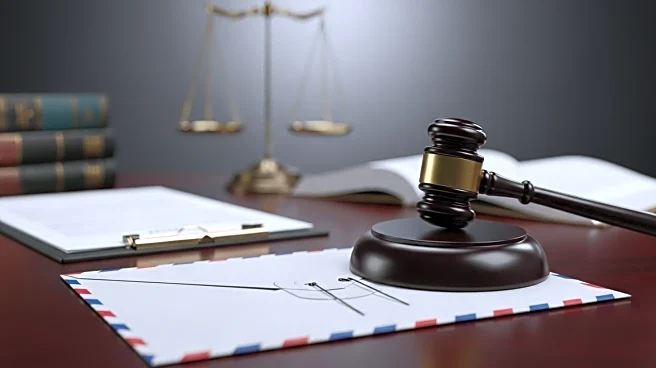What is the story about?
What's Happening?
Supreme Court Chief Justice John Roberts has expressed concerns over a potential disaster in a case challenging Illinois' law on counting late-arriving mail-in ballots. The case, brought by U.S. Representative Michael Bost, questions whether the number of votes received should impact a candidate's ability to pursue legal action. Lower courts dismissed the case, stating the late votes had minimal effect on election results. Roberts highlighted the complexity of determining standing based on electoral prospects, suggesting it could lead to political decisions by the judiciary during critical electoral periods.
Why It's Important?
The case underscores the ongoing debate over mail-in voting, a contentious issue in U.S. elections. Illinois is among several states allowing mail-in ballots postmarked by Election Day to be counted afterward. President Trump's executive order seeks to mandate votes be cast and received by Election Day, facing legal challenges. The outcome of this case could influence future election laws and the role of courts in electoral processes, potentially affecting voter access and election integrity.
What's Next?
The Supreme Court is expected to deliver its ruling by June. The decision could set a precedent for how election laws are challenged and interpreted, impacting future litigation and election administration. Stakeholders, including political parties and election officials, are closely monitoring the case for its implications on electoral procedures and candidate rights.
Beyond the Headlines
The case raises ethical and legal questions about the judiciary's role in elections. It highlights the tension between ensuring fair electoral processes and avoiding judicial overreach into political matters. The decision could influence how courts balance these concerns, affecting public trust in electoral systems.
















